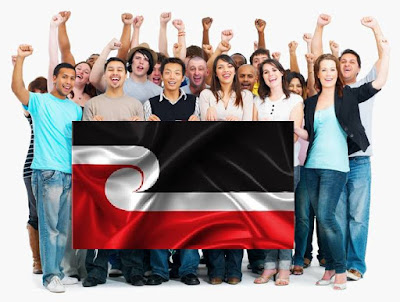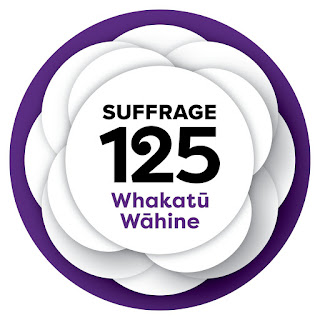Offensive identities: immigrant, migrant, refugee
A definition:
Just what is internalized racism? One might describe it as a fancy term for a problem that’s pretty easy to grasp. In a society where racial prejudice thrives in politics, communities, institutions and popular culture, it’s difficult for racial minorities to avoid absorbing the racist messages that constantly bombard them. Thus, even people of color sometimes adopt a white supremacist mindset that results in self-hatred and hatred of their respective racial group. Minorities suffering from internalized racism, for example, may loathe the physical characteristics that make them racially distinct such as skin color, hair texture or eye shape. Others may stereotype those from their racial group and refuse to associate with them. And some may outright identify as white. Overall, minorities suffering from internalized racism buy into the notion that whites are superior to people of color.
Just from talking to other young people of Asian/Middle Eastern/African descent about this conference, I've encountered a quite a few people who reacted quite negatively to the labels of "migrant", "immigrant" and "refugee". A lot of people who have grown up in Aotearoa/NZ or have been here for most of their life, who feel more "kiwi" than their parents' culture or ethnicity, really seem to want to distance themselves from the identity of migrant/immigrant/refugee. I can understand where they are coming from, having become more acculturated and assimilated, but I think it's really revealing how being called an "immigrant" is offensive (like, "I can't believe you thought I was one THEM").
Within ethnic groups, the period of time of residency here and the level of integration to the dominant culture, definitely makes a difference to your status in this country. The longer you've been here, the better English you can speak gains you more acceptance. It's another set of hierarchies within ethnic groups based on these factors (aside from the other gender, class, sexuality, age ones). It's another aspect of this culture of white/euro-cultural supremacy that colonised this land.
It takes a lot of effort and denial of history/culture/ancestry to fit in a Pakeha-dominated environment. And apparently fitting in means looking down on newer migrants.
It's really easy for me to say this now, but to be really honest, I totally bought into this type of mindset when I was younger. I was pressured into believing that I belong here more than newer Asian migrants 'cause I can speak English without an accent and because I've grown up here most of my life, people say I'm "practically a Kiwi" as a compliment.
I'm all for the power to self-identify in this world, but we also live in a context of racism and ethnic hierarchies where some, especially the younger generation, don't want to identify with their parents' culture/identity or being at some point "foreign" 'cause it compromises their sense of belonging. Of course everyone wants to be included and feel a sense of belonging, but it seems to mean having to conform and adopt racist and xenophobic attitudes towards newer migrants. We need to start challenging this kind of crap, break this chain of command and address the real underlying problems that causes these attitudes and heal from our own internalised racism. One of the major obstacles to social liberation in this era is internalised oppression.
Here's some ideas already out there:
HEALING FROM THE DAMAGE INFLICTED BY RACISM AND INTERNALIZED RACISM
To heal from the damage inflicted by racism and internalized racism, we need to tell our stories--how racism has affected our lives, what has happened to us and to our people. We need the chance to openly express our feelings about our experiences of racism. When we do this, the damage done by racism begins to dissipate. We start seeing ourselves as good, smart, strong, complete human beings. We feel and act more powerfully and hopeful about ending racism and other oppressions. We treat each other more respectfully and cooperatively.
For this healing process to work well, we need someone to listen attentively--someone who is sincerely interested, who stays relaxed while we express our emotions, and who encourages us to use the process of emotional release--crying, laughing, trembling, and so on. Any two individuals can agree to take turns listening to each other, without interruption, for a specified amount of time (for example, half an hour each), encouraging each other to share our experiences fully and release our emotions.
United to End Racism has found that safety for healing from internalized racism builds when people meet not only in pairs but also in support groups with others from a similar background or heritage (for example, African or African descendant, Indigenous, Asian or Asian descendant, Chicano/Chicana, Mestizo/Mestiza, or Arab or Arab descendant). In these support groups each member has an equal amount of uninterrupted time to share experiences of racism while the others listen attentively. The support group leader encourages the person talking to express his or her thoughts and feelings. The leader welcomes and encourages the tears, trembling, raging, and laughter that often occur spontaneously as people talk about their struggles with racism.
When we first participate in these groups, internalized racism may cause negative feelings about each other (feelings of distrust, dislike, upset with, and so on) to surface. Members of the group have to make an agreement to not act on the basis of those feelings that would keep us separated from each other.
Questions such as the following can help members of support groups begin to identify and focus on internalized racism:
What information about yourself would you like others to know--about your heritage, country of origin, family, class background, and so on?
What makes you proud about being a member of this group, and what do you love about other members of this group?
What has been hard about being a member of this group, and what don't you like about others in this group?
What were your early life experiences with people in this group? How were you treated? How did you feel about others in your group when you were young?
When people are given a chance to talk and express their feelings, internalized racism is directly challenged. As emotions are released, people's negative feelings about themselves and others in their groups begin to disappear. People are able to think more clearly. They can reach for cooperative relationships more easily. Once groups of people have had a chance to meet separately in this way, greater unity and participation are possible when they join with larger, more diverse groups of people.
Support groups can be used in many settings--at the workplace, at school, in religious settings, in the neighborhood. Support groups are increasingly helpful for the participants over time. As the participants get to know each other, they become closer to each other, more supportive of each other, and more open. Even two people can have a support group, taking turns listening to one another. Support groups can also be used for non-race-based groups, such as women, young people, and working-class people.


Ethnic hierarchies are problematic on various levels especially within the context of "inclusive multiculturalism" that many Western countries such as NZ preach as an ideal. It's made worse when dominant cultural groups of the "immigrant" kind, pretend it doesn't exist and continue to exemplify internalised racism in their day-to-day.
ReplyDeleteFor eg. in the very harsh world of arts industries where Asians are a minority, they often have to "hide" or "deny" any claims to racism, alter their names or find their space within artsy circuits' social networks and avoid other Asians at them eventhough most of the dwellers of the arts sector behave like pseudo-London/Paris wankers.